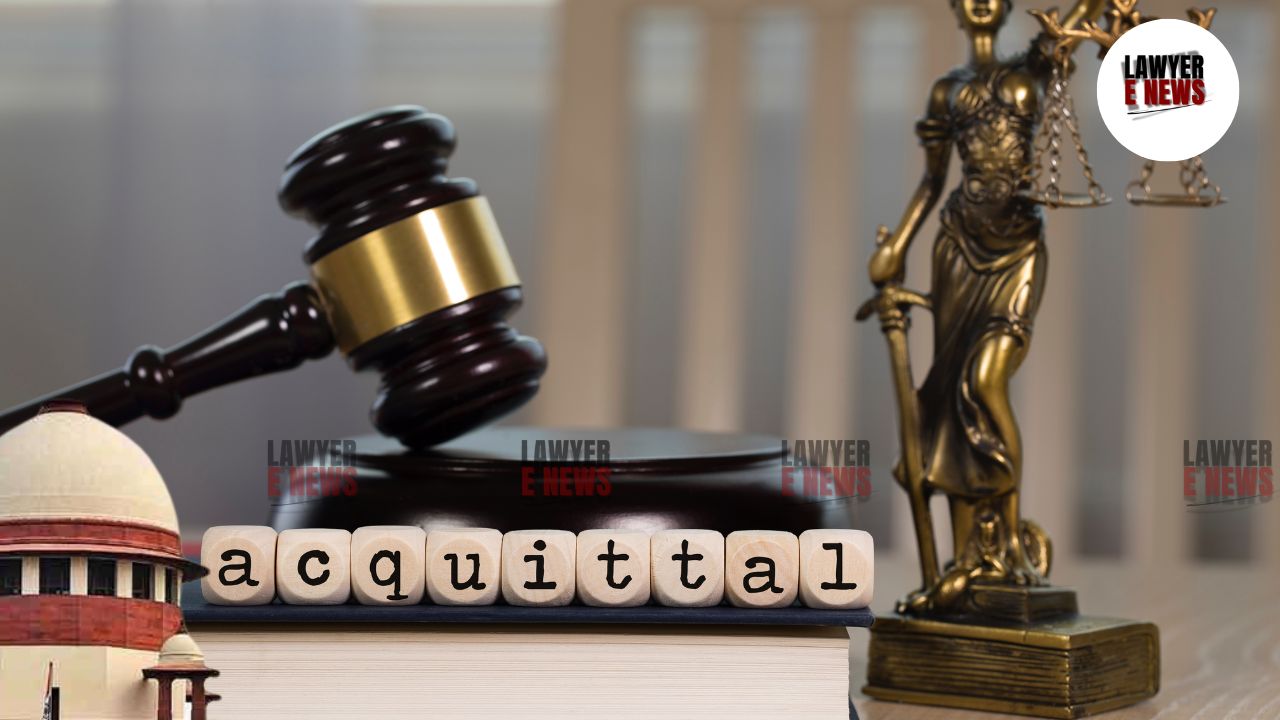-
by Admin
15 February 2026 5:35 AM



On September 23, 2024, the Supreme Court of India acquitted Yogarani, the appellant, of charges under Section 420 of the Indian Penal Code (IPC) and Section 12(2) of the Passports Act, 1967. The Court ruled that the appellant could not be convicted when other co-accused facing similar charges had been acquitted. This decision underscores the importance of consistency in judgments, particularly when identical charges and evidence are involved.
The case originated when Yogarani, a travel agent, was convicted of facilitating the issuance of a second passport to accused No.1, who was already in possession of one. Accused No.1 had applied for a second passport, allegedly to secure better employment opportunities abroad. The prosecution claimed that the appellant played a role in processing the application and demanded Rs.5,000 for handling the matter. The trial court had convicted her, along with others, but the High Court subsequently acquitted most of the co-accused, leaving the appellant as the sole convicted party.
The appellant argued that her conviction could not stand when other co-accused, charged under similar circumstances, were acquitted. The Supreme Court reiterated the principle of parity, holding that, as a matter of fairness and justice, similarly placed individuals cannot receive disparate treatment. It was stated:
"When there is similar or identical evidence against two accused, the Court cannot convict one and acquit the other. The principle of parity demands that criminal courts must decide like cases alike." [Para 10]
The conviction was also based partly on the testimony of PW-3, a key witness who turned hostile during the trial. The Court emphasized that a conviction cannot rest on the uncorroborated testimony of a hostile witness, particularly when no incriminating material is elicited during cross-examination.
"The testimony of PW-3, being unreliable, cannot be the sole basis for the conviction of the appellant." [Para 11]
The prosecution had presented the opinion of a handwriting expert (PW-16) to link the appellant to the case. However, the expert's opinion lacked certainty, and the Court reiterated that expert testimony, without corroboration, cannot be the sole ground for conviction.
"It is unsafe to base a conviction solely on the opinion of a handwriting expert without corroboration by other substantive evidence." [Para 13]
The appellant was accused of knowingly facilitating the issuance of a second passport with false information. However, the Court found that the prosecution failed to prove that the appellant had knowledge of accused No.1’s existing passport.
"In the absence of evidence proving that the appellant had prior knowledge of accused No.1's passport, the conviction under Section 12(2) of the Passports Act cannot be sustained." [Para 15]
The Supreme Court, in a detailed judgment delivered by Justice Aravind Kumar, analyzed the evidence against the appellant. The Court held that the appellant’s conviction could not be justified when other co-accused, who were equally implicated, were acquitted. This disparity in the treatment of similarly situated individuals violated the principle of parity, leading the Court to overturn the appellant’s conviction.
Moreover, the Court expressed doubts about the credibility of the prosecution's evidence. It found that the testimony of PW-3, the hostile witness, was unreliable and that the handwriting expert’s opinion was inconclusive. The prosecution’s failure to establish that the appellant had knowledge of false information being provided to the passport authorities further weakened the case.
The Supreme Court allowed the appeal and set aside the appellant’s conviction and sentence. The appellant was acquitted of all charges, and the bail bonds were canceled.
Date of Decision: September 23, 2024
Yogarani v. State by the Inspector of Police
